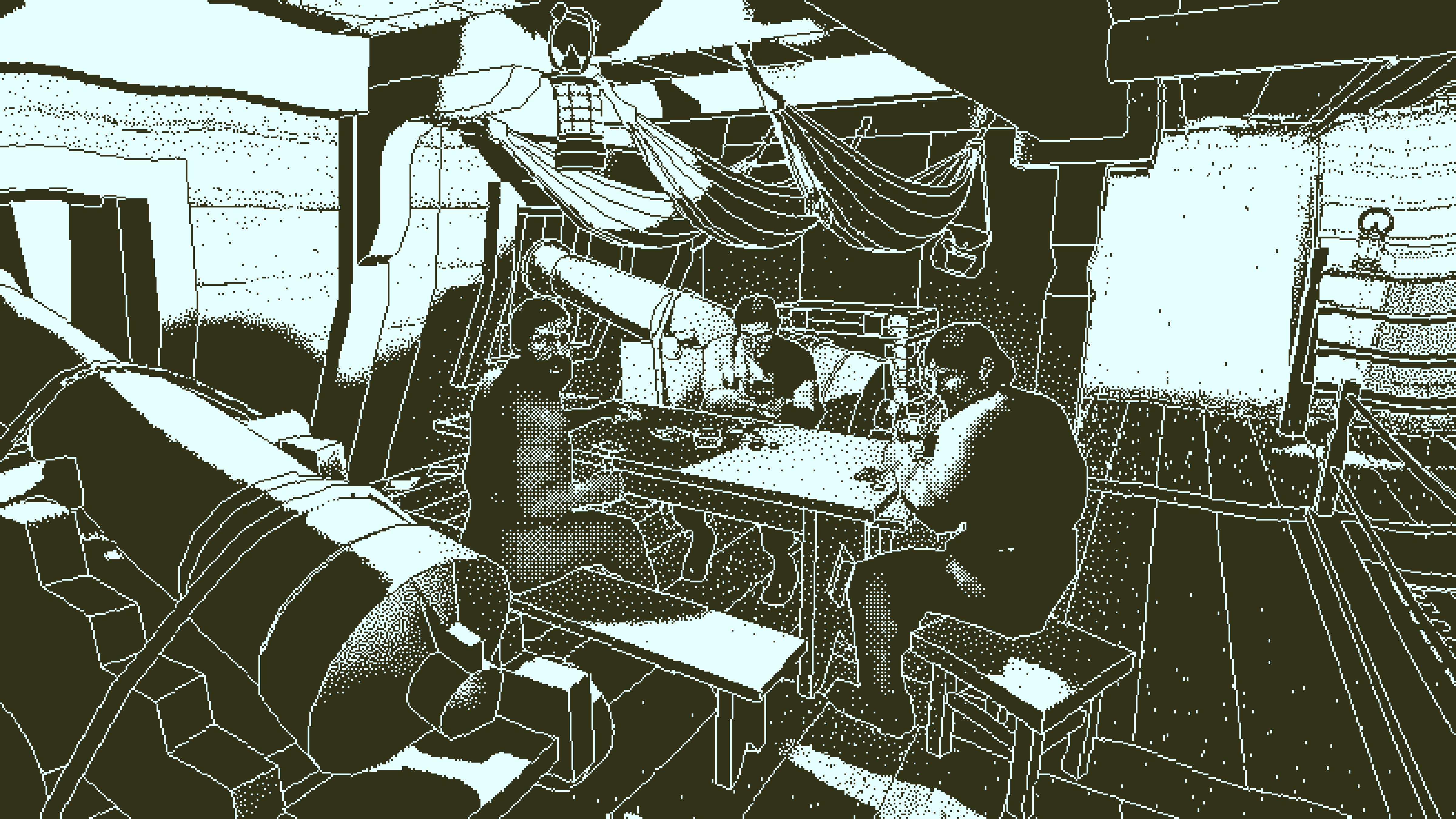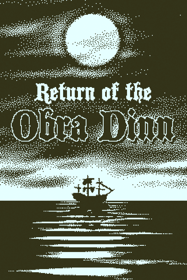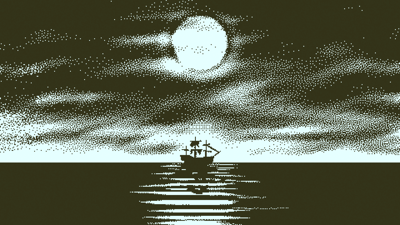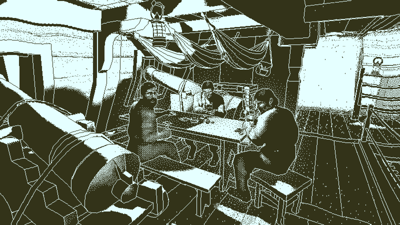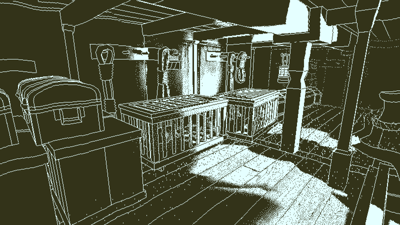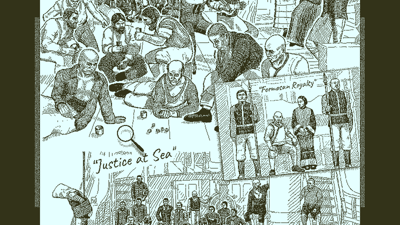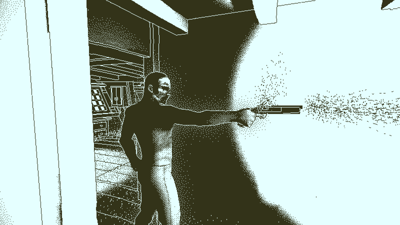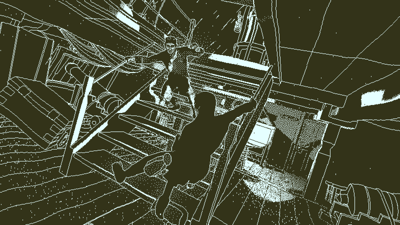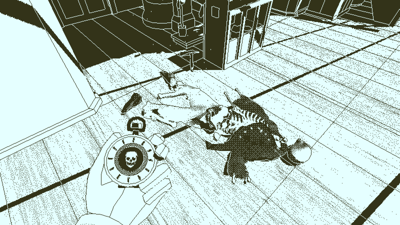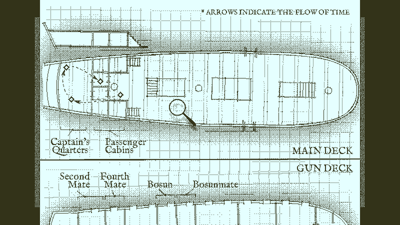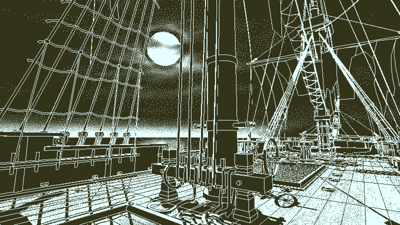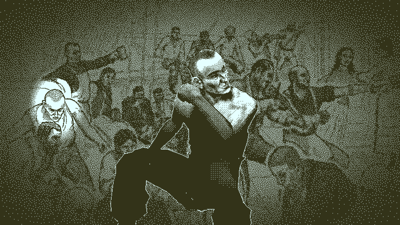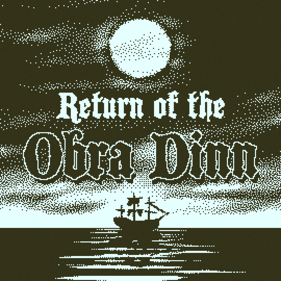Overview
1802: the merchant ship Obra Dinn becomes lost at sea. 1807: the ship drifts into port at Falmouth with no living soul on board, and all the crew and passengers dead or missing. An insurance investigator for the East India Company's London Office boards the ship in order to determine what exactly has happened. To this end, the investigator uses a magical pocketwatch called "Memento Mortem" which allows viewing the moment of any person's death.
Return of the Obra Dinn is a first-person detective game. The player's task is to determine the fate of each of the 60 people that were on board the ship. The player can explore the entire ship, from the upper to the bottom deck (although some locations are initially inaccessible). Whenever the player comes upon a corpse, he can use the Memento Mortem to view the moment of the person's death. This allows the player to hear the last few things said in the person's vicinity, and explore a time-frozen diorama that depicts the exact moment of their demise. Additionally, if the diorama includes any older visible corpses, the pocket watch can be used to generate an illusory image of these corpses elsewhere on board, which in turn can be used to access their death scenes. In doing so, the tragedy of the Obra Dinn is slowly reconstructed, death by death.
Each discovered death scene is entered into an initially blank log-book. The player's task is to fill in the identity of the deceased person, the means of their death, and (if applicable) their killer. To help in this endeavor, the log-book includes a list of names of all people on board, several group portraits, and a map of the ship; it also allows to quickly review certain details from previously seen death scenes.
Determining the identities and fates of the people on board is not easy, and often requires careful consideration of the clues present in the death scenes. For instance, the player may need to identify the people's roles based on their behavior, clothing or relationships with other people. At other times, he might need to carefully examine several successive death scenes in order to reconstruct a sequence of events. Whenever three people's fates are identified correctly, the game acknowledges this and the correct information is marked as such.
The game uses a graphical filter that mimics retro 1-bit graphics, such as those found in early Macintosh games.
- Developers
- Lucas Pope
- Publishers
- 3909
- Platform
- Windows
- Alternate Names
- No information available

